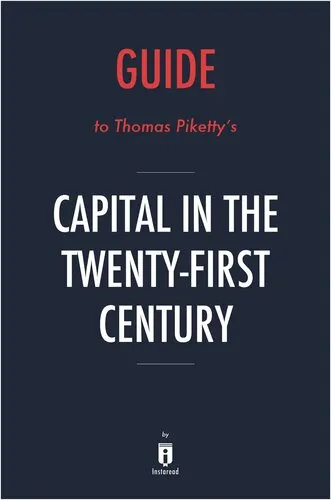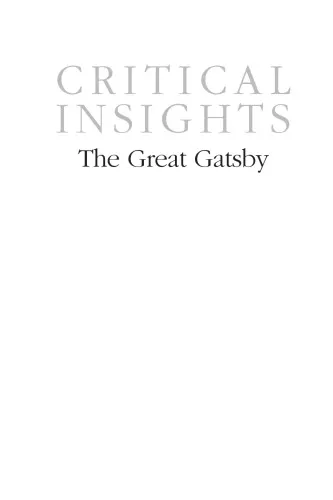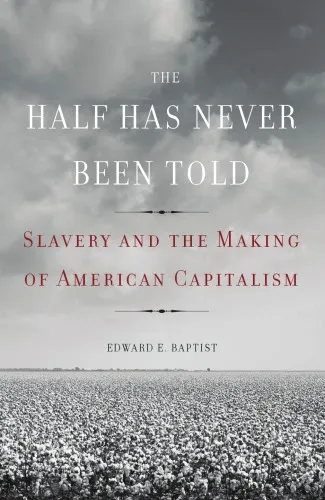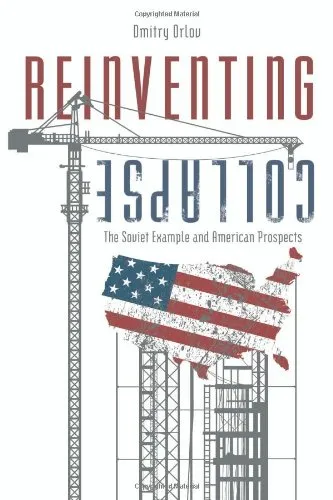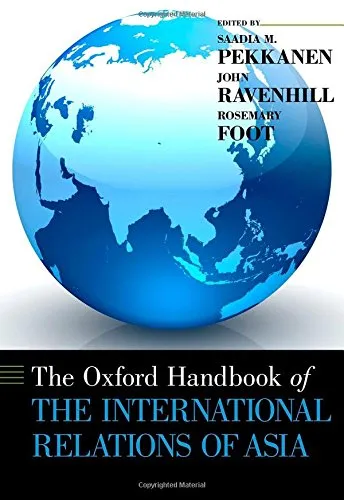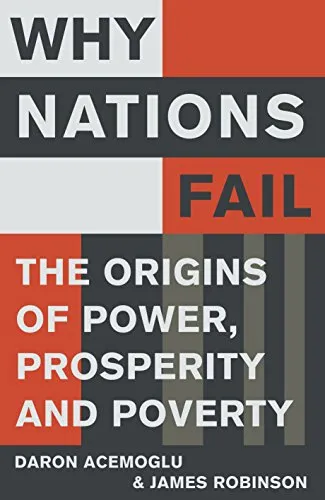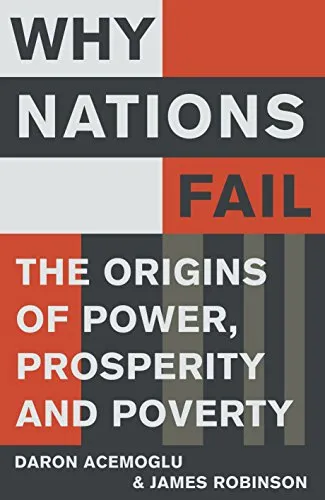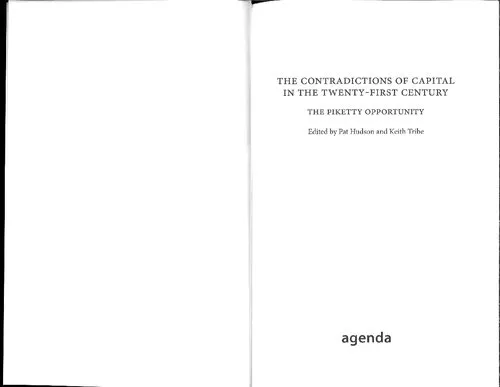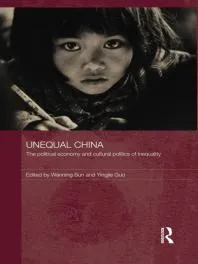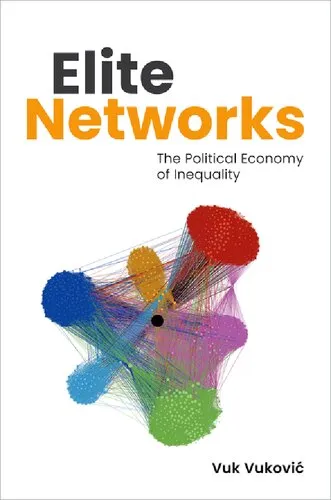Summary of Capital in the Twenty-First Century: by Thomas Piketty
4.0
بر اساس نظر کاربران

شما میتونید سوالاتتون در باره کتاب رو از هوش مصنوعیش بعد از ورود بپرسید
هر دانلود یا پرسش از هوش مصنوعی 2 امتیاز لازم دارد، برای بدست آوردن امتیاز رایگان، به صفحه ی راهنمای امتیازات سر بزنید و یک سری کار ارزشمند انجام بدینکتاب های مرتبط:
خلاصهای جامع از کتاب "سرمایه در قرن بیست و یکم": اثر توماس پیکتی
خلاصه جامع کتاب
توماس پیکتی با استفاده از دادههای دو قرن، به بررسی الگوهای بلندمدت توزیع ثروت و درآمد در کشورهای مختلف جهان میپردازد. او در این کتاب به بحث در مورد این که چگونه سرمایه و ثروت تجمع یافته به نابرابریهای اقتصادی بزرگتر منجر میشود، میپردازد. پیکتی تأکید میکند که اگر روند فعلی نابرابری ادامه یابد، به وضعیت "سرمایه" شدیدتر و نابرابر اقتصادی خواهیم رسید که شبیه قرون نوزدهم و اوایل قرن بیستم خواهد بود.
نکات کلیدی
- پیکتی بر اهمیت نقش Capital در تجمع ثروت و افزایش نابرابری تأکید دارد.
- این کتاب از دادههای تاریخی گستردهای برای نشان دادن نحوه رشد نابرابری استفاده کرده است.
- پیکتی پیشنهاد میکند که مالیات بر ثروت بهترین راهکار برای مقابله با نابرابری خواهد بود.
- نابرابری اقتصادی اگر به خوبی مدیریت نشود، میتواند به نابرابری اجتماعی منجر شود.
نقل قولهای معروف از کتاب
پیکتی مینویسد: "وقتی میزان بازده سرمایه بیشتر از نرخ رشد اقتصادی باشد، نابرابری افزایش مییابد".
او همچنین بیان میکند: "سیاستهای عمومی باید نقش مهمی در محدود کردن نابرابری داشته باشند".
اهمیت این کتاب
کتاب "سرمایه در قرن بیست و یکم" به دلیل تحلیلهای تخصصی و متنوع خود در حوزه اقتصاد و افزایش آگاهی درباره توزیع نابرابر ثروت و درآمد شناخته شده است. این اثر به جهت دادههای جامع و تحلیل عمیق، ابزاری قدرتمند برای تفکر درباره سیاستهای اقتصادی و اجتماعی ارائه میدهد. اهمیت این کتاب در این است که سیاستگذاران، دانشگاهیان و حتی مردم عادی را به تفکر وامیدارد تا بر اساس شواهد تاریخی با نابرابریهای مدرن مقابله کنند.
Introduction to the Summary of "Capital in the Twenty-First Century" by Thomas Piketty
In recent years, Thomas Piketty's "Capital in the Twenty-First Century" has emerged as a seminal text in economic discourse, igniting debates about wealth, inequality, and the future of capitalism. This summary presents a comprehensive overview of Piketty's monumental work, distilling its core arguments and insights. As we delve into this analysis, we will explore the intricate dynamics of capital accumulation, the historical contexts of economic disparities, and the potential pathways to a more equitable society.
Detailed Summary of the Book
Thomas Piketty's "Capital in the Twenty-First Century" meticulously examines the historical trajectory of wealth and income inequality from the 18th century to today. The book's central thesis posits that the rate of return on capital (r) tends to outpace the rate of economic growth (g), leading to an exacerbation of wealth inequality. Piketty explores how this fundamental inequality is not merely an economic anomaly but a persistent characteristic of capitalist economies.
Utilizing a vast array of data collected over decades, Piketty demonstrates that the post-World War II era, often considered an anomaly due to its relatively low inequality levels, does not reflect the broader historical norms. In fact, he argues that the reduction in inequality during this period was largely due to unique circumstances such as global wars and economic policies that are not replicable under contemporary conditions.
Furthermore, the book delves into the societal and political implications of rising inequality, emphasizing the concentration of wealth among an elite minority. Piketty further explores the role of capital in various forms, from tangible assets like real estate to intangible assets like intellectual property, in perpetuating social hierarchies.
Key Takeaways
- The disparity between the rate of return on capital and the rate of economic growth inevitably leads to increased wealth inequality.
- The mid-20th century's unique socio-economic environment was an exception in the historical trends of inequality.
- Piketty calls for progressive taxation on wealth, particularly targeting the upper echelons of the wealth pyramid, to mitigate inequality.
- Long-term policy solutions must address the structural imbalances within capitalist systems.
Famous Quotes from the Book
"The history of inequality is shaped by the way economic, social, and political actors view what is just and what is not, as well as by the relative power of those actors and the collective representations they make of the world."
"When the rate of return on capital exceeds the rate of growth of output and income, as it did in the 19th century and seems quite likely to do in the 21st, capitalism automatically generates arbitrary and unsustainable inequalities."
Why This Book Matters
"Capital in the Twenty-First Century" provides a vital framework for understanding the mechanisms driving wealth inequality in modern societies. Piketty's work challenges traditional economic assumptions and inspires policymakers, economists, and the general public to critically assess the sustainability of current economic paradigms.
The book's cross-disciplinary approach, incorporating history, economics, and sociology, elevates its relevance beyond academic circles, prompting a global reevaluation of the policies that govern wealth distribution. Moreover, by advocating for progressive tax reforms and enhanced regulatory frameworks, Piketty offers actionable solutions to combat systemic inequalities.
Ultimately, Piketty's incisive analysis serves as a clarion call to address the moral and practical exigencies posed by entrenched economic disparities, emphasizing the necessity of collective political action to craft a more equitable global society.
دانلود رایگان مستقیم
شما میتونید سوالاتتون در باره کتاب رو از هوش مصنوعیش بعد از ورود بپرسید
دسترسی به کتابها از طریق پلتفرمهای قانونی و کتابخانههای عمومی نه تنها از حقوق نویسندگان و ناشران حمایت میکند، بلکه به پایداری فرهنگ کتابخوانی نیز کمک میرساند. پیش از دانلود، لحظهای به بررسی این گزینهها فکر کنید.
این کتاب رو در پلتفرم های دیگه ببینید
WorldCat به شما کمک میکنه تا کتاب ها رو در کتابخانه های سراسر دنیا پیدا کنید
امتیازها، نظرات تخصصی و صحبت ها درباره کتاب را در Goodreads ببینید
کتابهای کمیاب یا دست دوم را در AbeBooks پیدا کنید و بخرید
1533
بازدید4.0
امتیاز0
نظر98%
رضایتنظرات:
4.0
بر اساس 0 نظر کاربران
Questions & Answers
Ask questions about this book or help others by answering
No questions yet. Be the first to ask!
